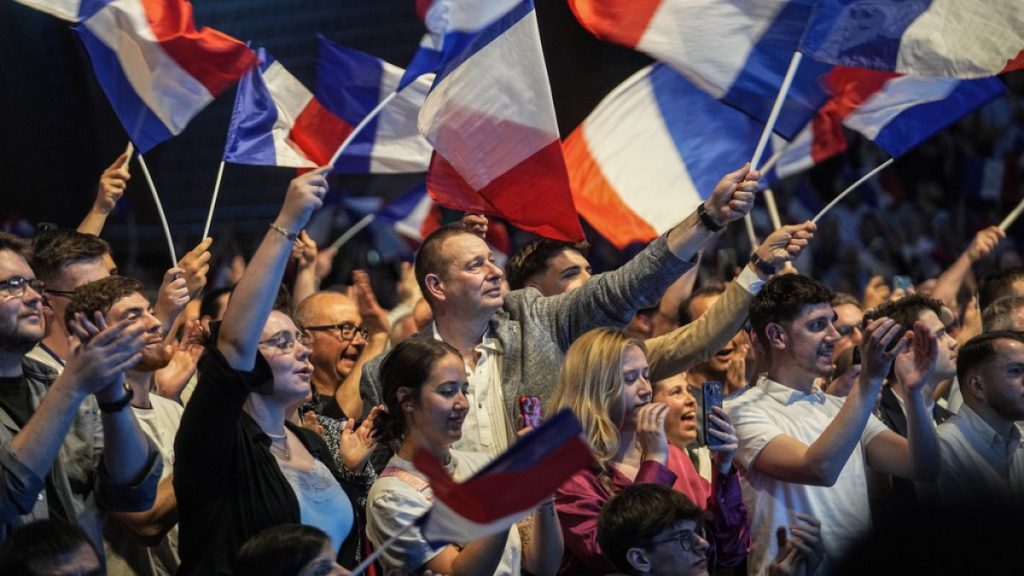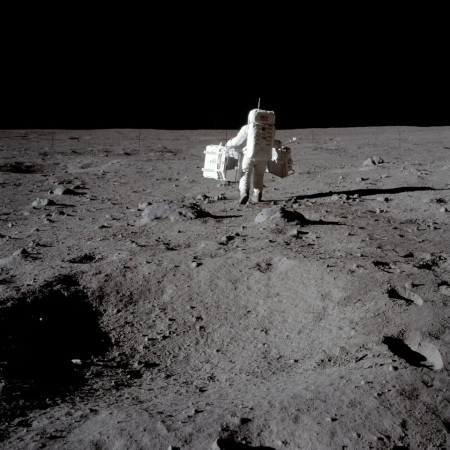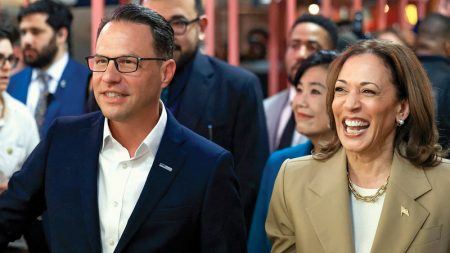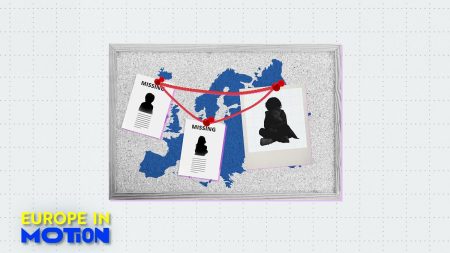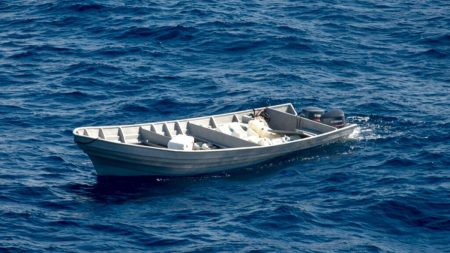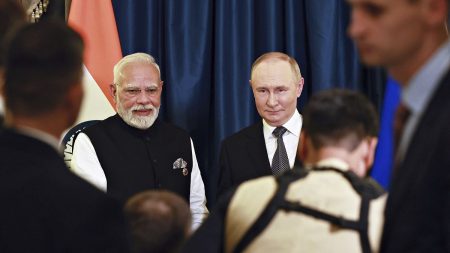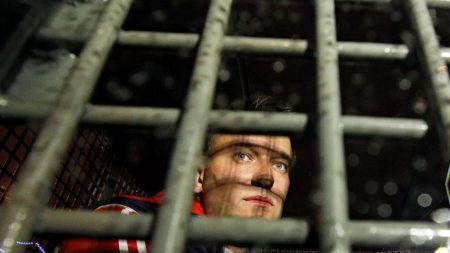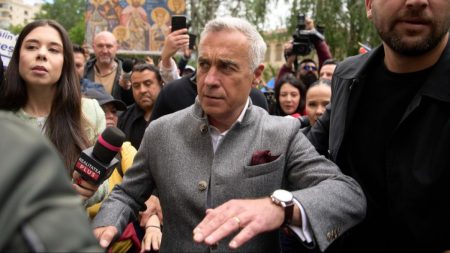Summarize this content to 2000 words in 6 paragraphs in Arabic
As 50 million people are expected to cast their ballot for the EU election, we break down what’s at stake for the vote in France.
ADVERTISEMENTAfter weeks of campaigning, countless rallies and multiple debates, the race for the European election is coming to an end. More than 50 million French voters are expected to head to the ballots on Sunday.Here’s everything you need to know about the EU election campaign in France. How does it work?French voters will be able to choose between 38 different parties, each presenting 81 candidates – the total number of MEPs France will send to the European Parliament in 2024. It is the second country with the highest tally of MEPs behind Germany which will have 96 seats this election out of a total of 720 in the hemicyle. Only parties that have garnered at least 5% of the vote will be able to send MEPs to Parliament. The initial results will be announced on the evening of 9 June starting at 8pm.On Friday starting at 11:59 pm until the first results at 8pm on Sunday, the French candidates are forbidden to speak publicly about the vote and broadcast media may no longer air political commentary or refer to any polls or estimates. What’s at stake for the different parties?A far right – Macron duelThis year, domestic issues dominated the EU election campaigning in France with immigration, purchasing power and security seen as the main concerns for voters, according tovarious polls.The far-right National Rally party (RN) have pitched their campaign as a referendum on the approval of French President Emmanuel Macron particularly on these issues, with the party’s lead candidate for these elections, Jordan Bardella, stating he would demand early legislative elections if his party wins. During his last campaign meeting in Paris on Sunday, Bardella called on the electorate to vote against Macron. “Next Sunday, to abstain is to vote for Macron. Next Sunday, voting for other [smaller] parties will only strengthen Macron,” he said in front of a cheering crowd of 5,000 people.Bardella has dominated the polls and is projected to secure about 32% of voting intentions, according to the latest Euronews poll. The goal for the party is to stay above the 30% mark, a score never before seen for the National Rally, except during the second round of the French presidential election. But historically, the party is accustomed to losing some points on the day of the election due to some voters changing their mind last minute. This may be the case of Stéphane, a 30-year-old dentist based in Paris and a long-time sympathiser of the National Rally. He told Euronews that is still choosing between two far right parties: Bardella’s National Rally and Marion Maréchal’s Reconquest party (currently at 5.9% of voting intentions). He said he finds Maréchal, 34, to be a “much better, more qualified and confident candidate” compared to her 28-year-old rival. “I don’t know whether to vote for Jordan Bardella to give him more power in the EU Parliament or to vote for Marion Maréchal who is more qualified,” he said. ADVERTISEMENTMacron’s liberal party in damage controlThe centre-right Renaissance party of President Macron, headed by European lawmaker Valérie Hayer in this ballot, is lagging by more than 15 points behind the National Rally (currently at 15.7%). The MEP was not widely known until recently and has been criticised for being too scholarly during debates. “Unfortunately Valérie Hayer’s form sucks, but she’s the least worst candidate out of all of them,” lamented Max, a 29-year-old consultant based in Paris. He said he will vote for the centrist party to limit the rise of the far right. “I would like for France to send MEPs who can participate in the construction of the EU rather than hindering it,” he told Euronews. Macron has been scrambling to save his party from the anticipated defeat by sending his prime minister Gabriel Attal to face Bardella in a one-on-one debate, instead of Valérie Hayer, causing backlash from other candidates as well as voters. ADVERTISEMENTA prime-time TV interview with Macron is scheduled for this Thursday evening, further angering the other candidates who have filed a complaint to the national media regulator, Arcom. “The President has been very involved in these elections but all of his actions have failed,” explained Christophe Boutin, a political scientist and public law professor at the University of Caen in Normandy. “It’s been difficult to boost the polls because his arguments are familiar ones. The French don’t see the efficiency that the President claims his party has achieved,” Boutin said in an interview with Euronews.For Renaissance, the goal now is to make sure they keep their second place, as Socialist candidate Raphaël Glucksmann has proved to be an unexpected rival, polling at 14% of voting intentions. The Socialist party’s ‘surprise’ candidateGlucksmann has been eyeing the second place, hoping to give a boost to his Socialist party (PS-PP), more moderate on the left-wing of the political spectrum than the France Unbowed (LFI) party and the Green party (EELV).ADVERTISEMENTFranck, 52, a community manager based in Paris said that although he voted for the Green party in the 2019 EU election, this year he has decided to go for Raphaël Glucksmann.“The Green campaign has been invisible, I haven’t retained anything of their proposals. I’m more interested in going back to the traditional left-wing”, he told Euronews.He believes Glucksmann represents a more “moderate and progressive programme compared to other left-wing parties whilst still integrating the proposals for the environment,” he said.The Green party, which made unexpected gains in the last EU election of 2019 at 13.5% of votes, is now struggling to create momentum. The party is currently stagnating at 5.8% of voting intentions – close to the minimum threshold of 5% necessary in France to send MEPs to Brussels. ADVERTISEMENTThe radical left-wing LFI formation, represented by MEP Manon Aubry, has been struggling in the polls at 8%. The party has centered its campaign around Gaza and recognising the Palestianian state, hoping to attract a younger electorate. What about undecided voters?Twenty-two percent of potential voters said they will make up their mind this week, including 10% the day before or on the same day, according to a poll by Elabe.Julia, a 28-year-old working in finance in Paris, said she didn’t vote in the last EU elections but is determined to cast her vote on Sunday. She said she is still undecided between multiple right-wing parties, citing immigration, agriculture and French sovereignty as her major concerns. “I won’t vote for a party that values the EU more than France. I’m not a eurosceptic but I do believe we should put France first,” she said. ADVERTISEMENTHowever, the left that has the largest percentage of undecided voters, according to Elabe. It’s the case of Elena, a 37-year-old coordinator in a medico-social organisation. She hasn’t made up her mind but she said she will only vote for a left or far left party, although she admits feeling disillusioned by the EU. “My perception of the EU has changed a lot over the last 15 years. I used to hope that we could influence things by voting. I’ve lost that hope,” she said, adding that she votes “out of habit.” “I thought the EU, as it was built, would create an egalitarian and just society. But it seems like the movement of goods and capital comes before citizens,” she said.What are the absention rates in France?The percentage of absentee voters in France is predicted to be around 50% this year. It’s slightly less than the average for other EU countries.ADVERTISEMENT“There hasn’t been no improvement but at the same time no decline in the abstention rate in France,” Boutin said. Young people are likely to abstain from voting while the older generation with higher incomes are most likely to vote, according to the political scientist. Florent, a 32-year-old consultant based in Lyon didn’t vote in 2019 because he “didn’t feel concerned for the EU.”He told Euronews he will vote this Sunday because he is anxious about the rise of the far right across the continent. He said he will vote for Macron’s centre-right party, one of the few to “believe in Europe and its institutions,” according to him. ADVERTISEMENT
رائح الآن
rewrite this title in Arabic EU elections: Everything you need to know about what’s at stake in France
مقالات ذات صلة
مال واعمال
مواضيع رائجة
النشرة البريدية
اشترك للحصول على اخر الأخبار لحظة بلحظة الى بريدك الإلكتروني.
© 2026 جلوب تايم لاين. جميع الحقوق محفوظة.






